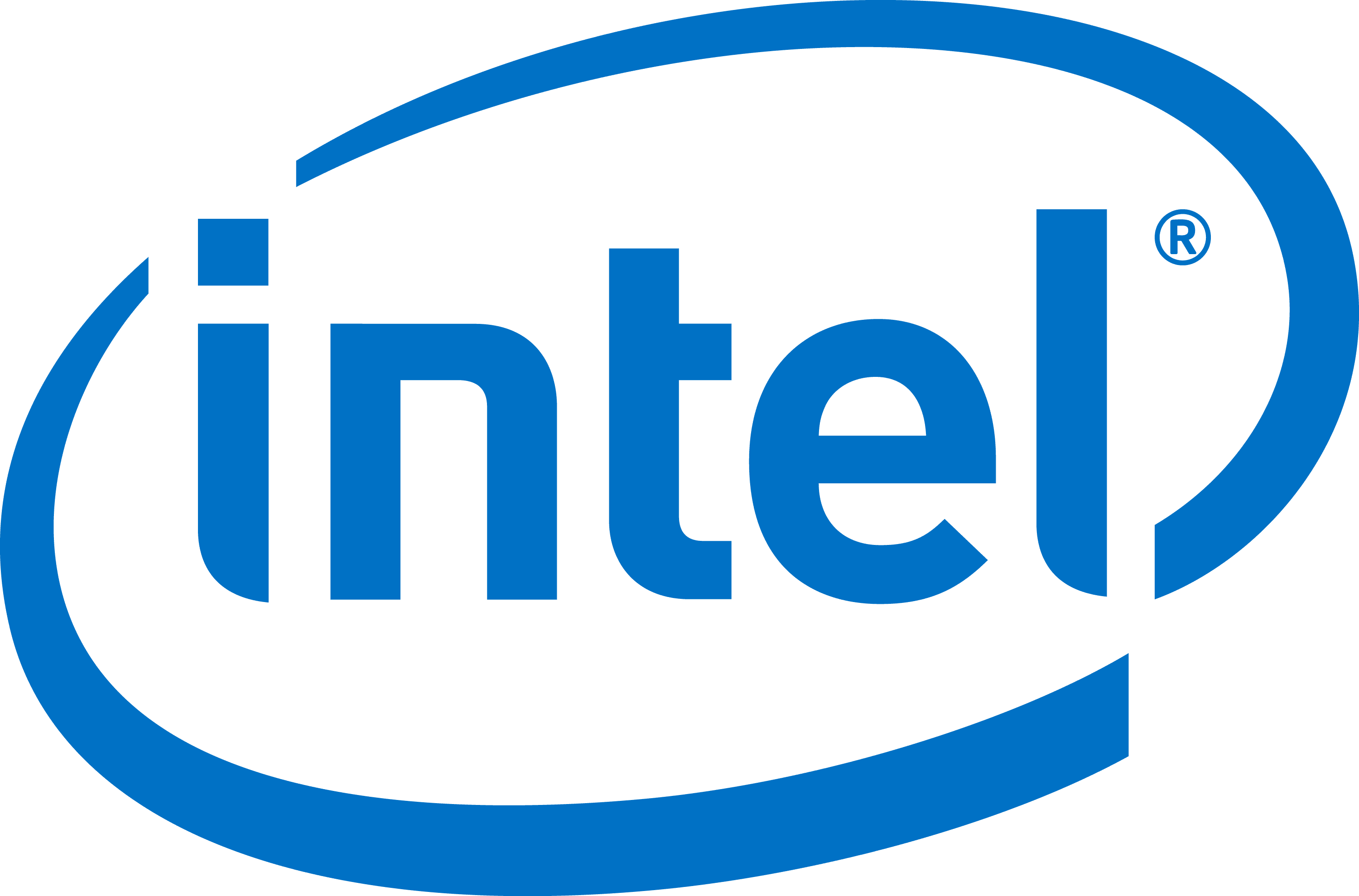Thursday June 27, 2019
16:00 pm – 17:30 pm
Room: La Grande Scène
Theme : Barriers and Frontiers of Softwarization for the Network of 2030
Rationale: The “softwarization” of the network is gaining an increased transformational role in the Telecommunications field today enabling unprecedented levels of abstraction, disaggregation, distribution, extensibility, slicing and programmability in network infrastructures and services. Software-based networking as part of core technologies of the upcoming 5G networks is radically changing the way communication infrastructures are designed, programmed, integrated and operated, enabling rapid and innovative network functions and network services creation with easy deployment.
While software-based network technologies, like Software-Defined Networking (SDN) and Network Function Virtualization (NFV), are gaining traction in today production environments there are still several challenges that need to be addressed before softwarization solutions become usable in the Beyond 5G Networks.
The purposed of the DEP is to explore some of the key barriers and frontiers of Softwarization for the Network of 2030.
Panel Moderator
- Alex Galis, University College London, UK
Panel Members
- Wenyu Shen, NTT Communications, Japan
- Roberto Kung, Orange Labs, France
- Alexander Clemm, Futurewei Technologies Inc., USA
- Lefteris Mamatas, University of Macedonia, Greece
- Christian Esteve Rothenberg, University of Campinas, Brazil
- K. K. Ramakrishnan, University of California, Riverside, USA
Alex Galis, University College London, UK., is a Professor in Networked and Service Systems at University College London (UCL). His current interests are on 5G and beyond 5G networking, software defined infrastructure and services, AI and networking, virtualization and softwarization, network and cloud programmability and management. He has co-authored more than 290 publications in the future Internet areas: networks and services, management, AI and networking, networking clouds, softwarization, virtualization and programmability including 10 research books. He has contributed to 8 ITU-T standards on Future Networks and 5G Networks, 1 ETSI specification on network slicing and he has worked on 15 IETF drafts on network slicing. He has been a co-principal investigator at UCL on a number of EU research projects with a total UCL budget of more than 12 M£. He was a member of the Steering Group of the Future Internet Assembly (FIA) and he led the Management and Service–aware Networking Architecture (MANA) working group at FIA. He acted as PTC/ keynotes/ panels/ workshops co-chair of 39 IEEE conferences and reviewer in more than 200 IEEE conferences and journals. He is a co-editor of IEEE Communications Magazine series on Telecom Software, Network Virtualization, and Software Defined Networks, IEEE JSAC series on Network Softwarization and Enablers, ETRI Journal published by Wiley and of the IEEE Communications Magazine feature topic on Advances in Networking Software. He is an International Academy, Research, and Industry Association (IARIA) Fellow (2011, https://www.iaria.org/fellows.html). He was selected as a Vice Chair of the ITU-T SG13 Group on Future Networking. He is involved in IEEE SDN initiative including co-chairing of the IEEE SDN publication committee.
Wenyu Shen, NTT Communications, Japan
Statement: In this talk, I would like to share with the audience the NTT Communications’ approach to move softwarization from concept to production, which will cover broad areas including access, edge and backbone networks. This talk with also presents NTT Communications’ blueprint on softwarization in the long term and the key challenges.
Biography: Wenyu Shen has over 10 years of experience in the telecommunications industry and currently serves as a technology development manager in NTT Communications. In this role, he drives NTT Communications’ SDN/NFV strategy and leads a team developing a next generation SD-WAN and NFV service platform. In the meantime, he is also actively involved in and contributing to the Open Source Communities and standardization bodies including ONF and MEF. As a representative of the NTT Group, he is currently a member of technical leadership team in ONF, leading ONF’s technical strategy. Before his current position, he was in charge of several important development projects for the commercial services such as the Enterprise Cloud service and the Arcstar Universal One service.
Prior to joining NTT Communications, Wenyu Shen started working for NTT Network Innovation Laboratories in 2008, where he was in charge of many core research projects including European FP7 project; areas covering GMPLS, OSS/BSS and network virtualization. He holds more than 10 patents and is the author of numerous papers and presentations in the area of network architecture and design.
Roberto Kung , SVP Technology and Operations Orange, France
Statement: In my keynote of Tuesday, I have tried to list some of the key issues that operators face today. In 10 years, most of these issues will be solved. However, it is hard to see how some of them will be fully solved. First, operators’ legacy equipment will still be there, especially in less developed countries. This may hinder the deployment of advanced services such as 5G slicing which is an important enabler for Business. The Telco cloud will not be ubiquitous yet.
Industries also will still use many legacy factories, tools or processes making it difficult to benefit from softwarisation. In many cases, a green field approach would be preferable.
Security issues and concerns (at governmental level, cybersecurity, data protection…) will make it difficult to implement advanced agile mode such as JAD (Joint Agile Delivery) with partners. Silo solutions may be developed, not allowing for benefiting from all the innovations.
At the operational level, we shall still have difficulties to have a true noOps world with automation, allowing operation to focus on Quality of Service improvement.
Biography: Roberto Kung is responsible for the Orange Expert program bringing together the top 600 orange experts on domains such as Network technologies and operations, Security, Data and AI, Software or Environment. The program also covers services aspects such as Content, communication or transaction services.
He is responsible for Orange strategy on Network Operation, with a specific focus on smooth deployment of innovations (use of Orange Integration network, organization, processes, OSS/tools and operational support).
Prior to that, he has been head of Orange Core Networks R&D, head of Lannion site, head of strategy in France Telecom’s Network division, Head of Strategy & Planning in France Telecom’s long-distance subsidiary. In the past, he has also been active in R&D, with the responsibility of all R&D activities regarding the Intelligent Network. He has been a member of TINA-C and responsible of the Working Group on Intelligent Network at ITU-T.
Roberto Kung graduated from École Polytechnique in France and has a telecom engineering degree from Telecom Paris Tech.
Alexander Clemm, Futurewei Technologies Inc., USA
Statement: New waves of networked applications continue to push the limits of networking technology. Many of those applications that are expected to be commonplace in 2030 (such as the Tactile Internet or Industrial Control) are characterized by stringent service level requirements that are difficult to accomplish with existing protocols, let alone be softwarized while operating at line rate. At the same time, to support those services, there is a need to dramatically simplify how networks can be programmed and managed. While today the focus in softwarization has been largely on fulfillment and orchestration, advances in assurance have arguably been lagging behind.
This presentation will summarize challenges in softwarization and management that need to be addressed as the networks of 2030 emerge.
Biography: Alexander Clemm is a Distinguished Engineer at Huawei’s Future Networks and Innovation Group in Santa Clara, California. He has been involved in networking software and management technology throughout his career, providing technical leadership for many products from conception to customer delivery, most recently in the areas of high-precision networks and future networking services as well as network analytics, intent, and telemetry. He has served on Organizing and Technical Program Committees of many management and network softwarization conferences, including as General Co-Chair of CNSM 2007 and IM 2013 as well as TPC Co-Chair of IM 2005, Netsoft 2017, and IM 2019. He has around 50 publications, 50 issued patents, and several books (including “Network Management Fundamentals”) and RFCs. Alex holds an MS degree in Computer Science from Stanford University and a Ph.D. from the University of Munich, Germany.
Lefteris Mamatas,University of Macedonia, Greece
Statement: The Edge Networking Evolution and the Softwarization of Internet of Things: The talk will provide practical experience, while discussing the research challenges of network softwarization solutions for the Internet of Things. It will discuss relevant research questions, including the following: (i) Can end-to-end slicing bring together IoT with edge cloud resources? (ii) Are the existing edge cloud technologies suitable to support novel Internet of Things services? (iii) What are the routing and network control challenges for the low power and lossy networks (LLNs)? and (iv) How Softwarized IoT test-beds can have a catalytic impact on the related research proposals?
Biography: Lefteris Mamatas is Assistant Professor in the Department of Applied Informatics, University of Macedonia, Greece. He leads the Softwarized & Wireless Networks Research Group (http://swn.uom.gr) in the same University. He worked as a researcher at the University College London (UK), Space Internetworking Center/Democritus University of Thrace (Greece), and DoCoMo Eurolabs (Munich). His research interests lie in the areas of Software-Defined Networks, Internet of Things, 5G Networks, and Multi-Access Edge Computing. He participated in many international research projects, such as NECOS (H2020), FED4FIRE+ OC4 (H2020), WiSHFUL OC2 (H2020), MONROE OC2 (H2020), Dolfin (FP7), UniverSELF (FP7), and Extending Internet into Space (ESA). He has published more than 60 papers in international journals and conferences. He served as a General Chair for the WWIC 2016 conference and the INFOCOM SWFAN 2016 workshop, as a TPC Chair for the INFOCOM SWFAN 2017, E-DTN 2009, IFIP WWIC 2012 conferences/workshops and as a Guest Editor for the Elsevier Ad Hoc Networks Journal.
Christian Esteve Rothenberg, University of Campinas, Brazil
Statement: Towards Deep Programmable Slicing
We will discuss how the concept of slicing –so much hyped these days– may be only at the tip of the iceberg if we consider how deep network slicing can go, taking multi-tenancy to an extreme. Today`s telecom infrastructure take timid approaches on sharing infrastructure assets (energy, space, hardware, etc.). As the history of multiplexing gains keeps proving, we shall expect deeper approaches to any-layer resource sharing, from virtualized infrastructures to applications and network functions in slicing operational modes where multi-tenancy goes wild. Such deep slicing vision is deep on both the vertical (multi-layer) aspect as well as horizontal (end-to-end and multi-domain) realms. We will present some exemplary approaches to this end. Furthermore, deeps slicing takes Customer-Provider recursivity to an extreme and is characterized by unprecedented tenant-controlled operations, where slice tenant have the choice on the network protocol stack and actual software instances under its responsibility, offering unprecedented levels of programmability.
Biography: Christian Rothenberg is Assistant Professor (tenure-track) and head of the Information & Networking Technologies Research & Innovation Group (INTRIG) at University of Campinas (UNICAMP), where he received his Ph.D. in Electrical and Computer Engineering in 2010. From 2010 to2013, he worked as Senior Research Scientist in the areas of IP systems and networking, leading SDN research at CPqD R&D Center in Telecommunications, Campinas, Brazil. He holds the Telecommunication Engineering degree from the Technical University of Madrid (ETSIT – UPM), Spain, and the M.Sc. (Dipl. Ing.) degree in Electrical Engineering and Information Technology from the Darmstadt University of Technology (TUD), Germany, 2006. His research activities span all layers of distributed systems and network architectures and are often carried in collaboration with academia and industry (e.g., Ericsson, Samsung, CPqD) around the world, leading to multiple open source networking projects (e.g., RouteFlow, libfluid, ofsoftswitch13, Mininet-WiFi) in the areas of SDN and NFV among other scientific results. Christian has two international patents and over 100 publications, including scientific journals and top-tier networking conferences such as SIGCOMM and INFOCOM, altogether featuring 5000+ citations. He was an Open Networking Foundation (ONF) Research Associate (2013-2017), co-chair of the IEEE SDN Outreach Committee initiative (2016-2017), is a member of the CPqD Innovation Committee (2017-), and CNPq Productivity Research Fellow (2017-2020).
K. K. Ramakrishnan, University of California, Riverside, USA
Statement: The Failure Resiliency Challenge for Software-based Networks
Abstract: NFV platforms enable high bandwidth network functions to operate at near line speed, while taking advantage of the flexibility and customization of low-cost commodity servers. However, resilience to failures, both in software as well as hardware remains a challenge. The failure resiliency problem in NFV is different than what has been traditionally dealt with, because of the need to manage data plane state carefully and ensure correctness. Supporting non-determinism also introduces additional complexity and overhead. I will briefly discuss these issues and outline our solution approach to failure resiliency in NFV.
Bibliography: K. K. Ramakrishnan is Professor of Computer Science and Engineering at the University of California, Riverside. Previously, he was a Distinguished Member of Technical Staff at AT&T Labs-Research. He joined AT&T Bell Labs in 1994 and was with AT&T Labs-Research since its inception in 1996. Prior to 1994, he was a Technical Director and Consulting Engineer in Networking at Digital Equipment Corporation. Between 2000 and 2002, he was at TeraOptic Networks, Inc., as Founder and Vice-President.
Dr. Ramakrishnan is an ACM Fellow, IEEE Fellow and an AT&T Fellow, recognized for his fundamental contributions on communication networks, congestion control, traffic management, VPN services, and a lasting impact on AT&T and the industry. His work on the “DECbit” congestion avoidance protocol received the ACM Sigcomm Test of Time Paper Award in 2006. He has published over 250 papers and has 172 patents issued in his name. K.K. has been on the editorial board of several journals and has served as the TPC Chair and General Chair for several networking conferences. K. K. received his MTech from the Indian Institute of Science (1978), MS (1981) and Ph.D. (1983) in Computer Science from the University of Maryland, College Park, USA.









